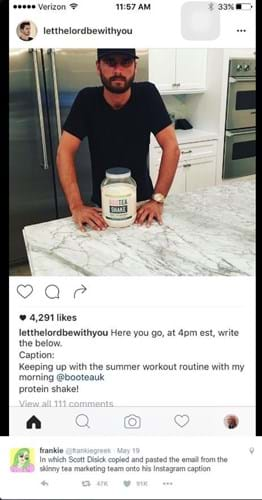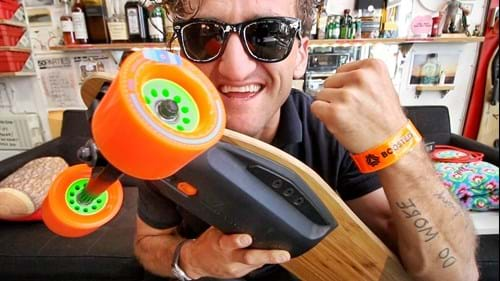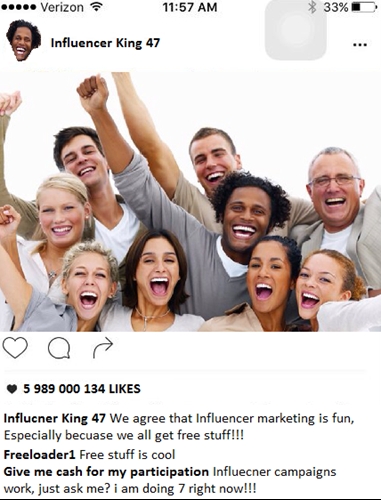
What’s the Big Deal with Influencers?
If a client says to you, “We want you to run an influencer campaign”, and chills run down your spine and a cold sweat sweeps across your brow, you have likely experienced the highs and lows of running this type of campaign.
We live in a world where the product that we are advertising or the story that we are pushing is not as important as the person who is using the product or talking about the story. This is evident by the exorbitant amounts of money high-end influencers charge for mentioning or taking part in campaigns.
What you use an influencer for will determine who you are looking at using. This is a critical part of the influencer campaign. Finding the right influencer for the campaign will be key to a successful campaign. Using a celebrity chef to talk about technology won’t be as effective as using a technology guru or fundi. Once you’ve found your influencer then comes the hard part: the actual campaign.
An influencer campaign will fail very quickly if the content created by the influencer comes across as prescribed and not organic. The influencer needs to create content that they believe in or at least content that sounds like it was written by them and not a copywriter in an office. It’s easy to spot a fake endorsement or prescribed piece of content:

What a brand manager is looking for is a genuine, real and honest relationship with the influencer. They want the influencer to believe in the product as much as they do. This can be achieved in a few ways:
1. The brand has a product that truly resonates with the influencer
A great example of this is a campaign featuring Casey Neistat, YouTube personality, filmmaker and co-founder of social media company Beme. Casey is an avid user of the electronic skateboard created by Boosted. The fandom by Casey and his social influence convinced Boosted to bring him onboard as a collaborator and advisor to the company for the launch of their second skateboard.

2. The brand enters into a formal contract with the influencer
The second, more common way to develop a relationship with an influencer is a paid campaign, which is generally done through an agency when brands are trying to sell more products or secure some form of engagement from a community. As influencer marketing is all the rage at the moment – and will be as long as there is pop culture in this world – agencies that specialise in sourcing influencers will continue to play an important role in nurturing relationships between influencers and brands. These companies work as brokers between agency and influencer.
Brands will approach influencers through an agency and offer them products as well as payment, in return for original content that promotes that product in a natural way, for a limited time period. This usually has two outcomes. Either all KPIs are met, positioning the brand in a positive light by its new audience, or the influencer doesn’t come to the party and it’s obvious that they are purely in it for the money. The latter goes against the idea of an influencer. The main aim is for the influencer to show their own audience that the brand is something they believe in, even if they are getting paid to say so. If this comes across as fake, the campaign can be damaging for the brand and the influencer, and all that happens is the influencer ends up with payment and a usually expensive product.
Influencer campaigns can go one of two ways. Either the campaign is an amazing success with the influencer creating organic, original content regularly without having to be reminded, and treating the relationship professionally, or it goes the other way, where influencers do not post as often as they agreed to or they create boring content that does nothing for brand sentiment. Unfortunately, this is most common when it comes to influencer campaigns.
If I had it my way, I would scrap influencer campaigns altogether and rather spend the money on creating great, original content that people will see and engage with without being told to do so by someone who is being paid for their efforts.

Bryan Isakow is an account executive at WE South Africa
The latest blogs from WE
Decoding Gen Alpha: A Primer on the Next Gen of Consumers
Why Gen Alpha Will Fuel Spending This Season
Why Reputation Is a Business Driver in Healthcare

